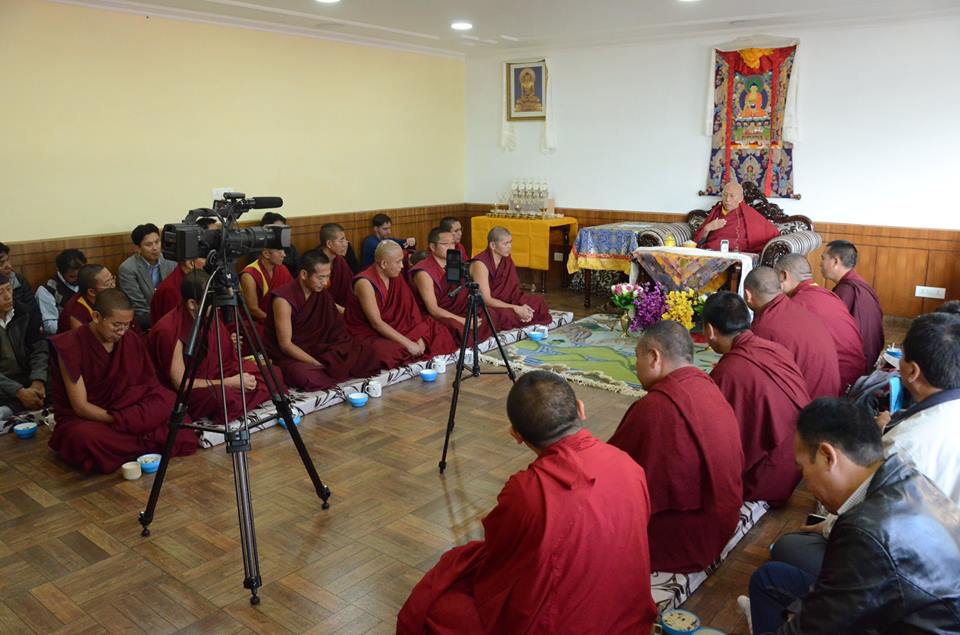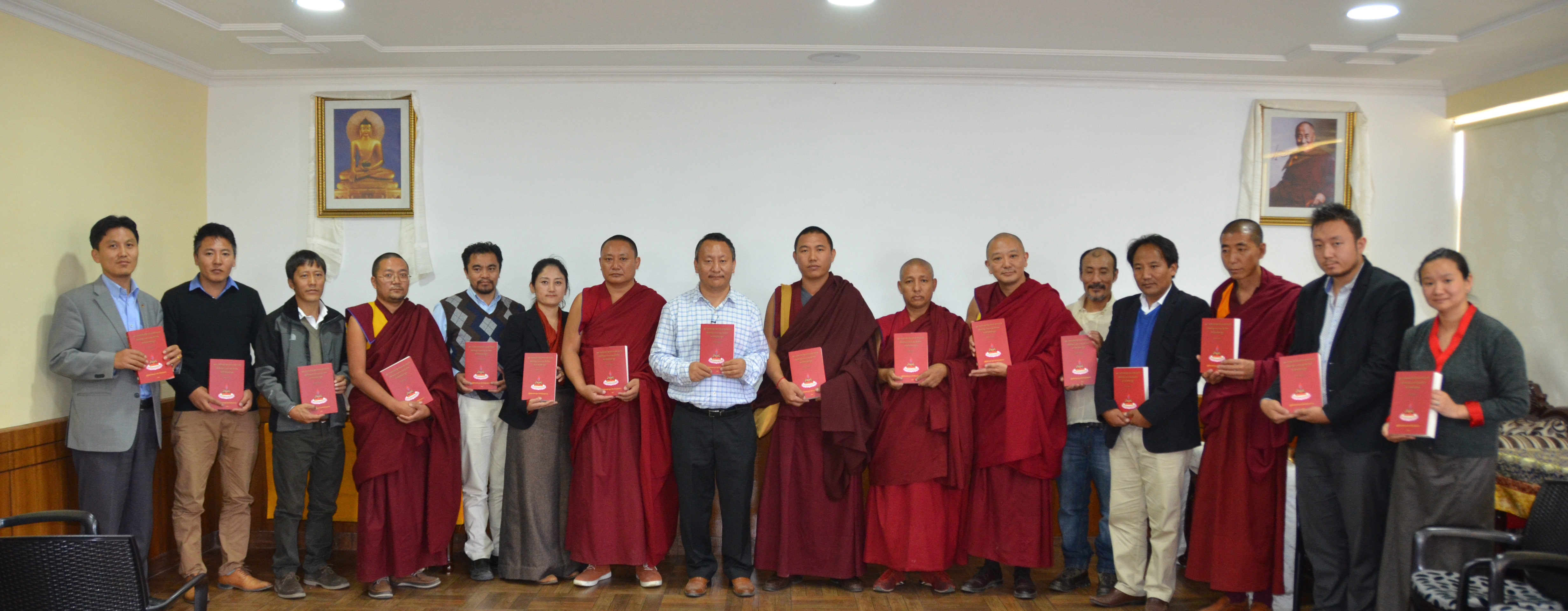His Eminence Professor Samdhong Rinpoche celebrated his 77th birthday at a ceremony in Lha Charitable Trust’s Ahimsa Hall with offerings to the Three Jewels followed by prayers and the serving of tea and ceremonial rice. Rinpoche gave a talk on social work to representatives of various monasteries and non-government organisations. Following the talk, volume seven of Rinpoche’s Collected Works was launched.
Elsewhere, the Ancestral Model School (Peton School) in Dharamshala convened a cultural show of dances and songs and outside Dharamshala his birthday was celebrated at Central University for Tibetan Studies in Varanasi and Tibetan students and disciples at Sarnath held a ceremony to release fish, which represents a generosity of freedom from fear and saving lives, and offered meals to the poor; in Minesota in the United States the Tibetan organisation Youth for the Middle Way Approach held an event for students of the Tibetan Culture School. In southern India at Sera Je Secondary School, the Tibetan school at Bylakuppe, the long life Supplication-Prayer was recited while at Tsawa་Khangtsen, of Drepung Loseling Monastic University, special prayers were said by the monks. His Eminence’s birthday was celebrated and honoured in Tibet with prayers and the setting free of animals.
Rinpoche’s talk at Ahimsa Hall was on the theme “The ways of maintaining motive, and carrying out works by social-services workers”. He said that the term “social work” has spread from the west, but for Buddhists, most of the spiritual and worldly activities one does anyway would include social service; more so in the Great Vehicle teachings.
Rinpoche said that it is the motivation of social workers which is important, even an action which is unwanted by the recipient can turn to good if the motivation is pure, and this is relevant to nations as well as individuals. Conversely, he said, an action which is apparently good will not turn out well if the motivation is not good.
He said that any service must be carried out with no agenda or expectation of return and that any such expectation represents self-interest as it derives from the ego. A social worker needs wisdom, said Rinpoche, and that the groups most in need of social services are children, the elderly and the sick, poor and disabled people. He stressed the importance of working to make people independent rather than teaching them to rely on continued handouts – it is better to teach a person how to fish, he said, rather than to keep giving him fish to eat. By fulfilling the recipient’s needs the hope is that he or she will improve their conduct and mental attitude which will enable them to become a good human being rather than one who becomes dependent or has a tendency to behave badly. Above all, said Rinpoche, the work must never increase the social worker’s ego.
The book launch followed the talk, Volume 7 of the Collected Works of His Eminence Prof Samdhong Rinpoche. The Collected Works include His Eminence’s speeches, writings and interviews. The 500 page volume, in Tibetan, is a continuation of the series edited by Dr Tenzin Dhonyoe. The launch was introduced by Mr Ngawang Rabgyal, Director of the book’s publisher, Lha Charitable Trust, and attended by a group of dignitaries and officials from various monasteries, educationists and government officials.






 Print
Print Email
Email